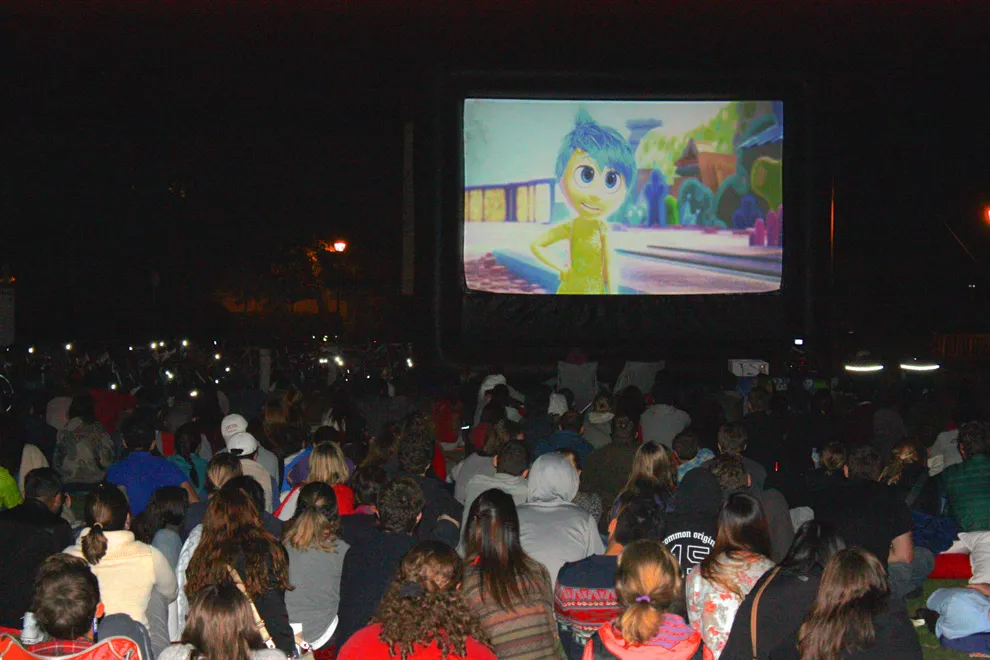Housed under a new office. Financial constraints. Student safety concerns. Outdoor versus indoor versus Zoom. And now — a new COVID-19 variant. For Trista Shielder, associate director of the Office of Student Engagement (OSE) and long-time Cardinal Nights coordinator, planning events this year has been difficult.
Amidst the barriers Shielder and her colleagues at the OSE face, hosting Cardinal Nights has been a puzzle, according to OSE director Snehal Naik. The premier, substance-free program disappeared almost entirely in the fall, reducing the social opportunities available to students.
Now, in the program’s absence, parties and alcohol consumption are increasing among students. More upperclass students were transported for alcohol poisoning in September 2021 than in the first weekends of the past four years, according to an email by the University.
The co-directors of 5-SURE on Foot, the University’s student-led alcohol safety program, outlined the effects of Cardinal Nights’ disappearance in an op-ed last December.
Without Cardinal Nights, students who don’t drink are excluded, and those who don’t know their limits are pressured to “engage in drinking past their boundaries,” wrote co-directors Lea Wenting Rysavy ’22, Clarisse Hokia ’23 and Liza Hafner ’21 M.A. ’22.
Cardinal Nights’ disappearance can be largely attributed to a change in administrative offices. This is the first year where the program is housed under the OSE instead of the Office of Substance Use Programs, Education, & Resources (SUPER) — the office that created Cardinal Nights.
According to Shielder, housing Cardinal Nights under the OSE means that she has more flexibility in working with various community centers and campus stakeholders. However, the shift in offices has also reduced Cardinal Nights’ funding. SUPER would frequently secure donations that would go towards programs like Cardinal Nights — a source of income for event planning that did not follow Shielder to the OSE.
“You knock over the Jenga set, you got to put the Jenga set back together,” Shielder said. “And that takes a bit of maneuvering.”
Prior to the pandemic, Cardinal Nights was known for renting out movie theaters and providing petting zoos to students.
“It was a way to challenge the notion that you needed alcohol to have fun,” said Ralph Castro, director of SUPER. Over time, the program successfully “changed that norm and that perception.”
Ian Sills ’23, a resident assistant (RA) for the frosh dorm Crothers, believes that Cardinal Nights is also an important alternative for students who do not want to drink on the weekends.
“It does seem to me that some of my frosh aren’t too sure what to do with themselves at times. And we live in a very exciting area,” Sills said. “But it’s not always the easiest thing to want to go to San Francisco or something like that.”
Due to the pandemic, University-sponsored funding, including funding for Cardinal Nights, decreased for departments across campus in the fall. However, the University increased funding for substance-free programming in the winter. The University has not yet responded to a request for comment about decreases in funding.
Money isn’t the only issue plaguing the Cardinal Nights program. According to Naik, deciding the method for hosting events has also been difficult. Naik is eager to use outdoor spaces like The Oval, but ensuring that students stay at the event depends on the weather.
Naik also emphasized the importance of considering cost: “And again … the cost benefit analysis of how much money to invest, if only five students come versus 200 come.”
Both Naik and Shielder said they want to remain sensitive to the diverse needs of the student body, especially those who are immunocompromised or feel unsafe in large gatherings. Creating a safe and inclusive environment is of the utmost importance to the OSE, they said, and sometimes there is no clear solution to the problem.
“How do you support a community when there is such a vast array of people?” Naik said. “I keep asking the staff, ‘how do we bring more joy as the pandemic has impacted how we have fun?’”
Some students found alternatives to Cardinal Nights events in the fall. The Well House, the University’s new substance-free-themed dorm, has unintentionally become the center of substance-free social activities on campus according to RA Sahithi Pingali ’22. The house, which receives program support through SUPER, hosted events every weekend in the fall.
“There’s already people from across campus who have started coming … We prioritize residents, but there’s also a vision of just hosting events that anyone can come to,” Pingali said.
Other themed dorms also found alternatives to partying. From educational farm outings to writing letters to dining hall staff, RA Keona Blanks ’24 has coordinated numerous events for the public-service-themed dorm, Otero.
Blanks, however, still misses Cardinal Nights. “I do miss their movie nights, though, where we’d all get bused off to a cinema nearby. Those were a lot of fun,” Blanks said.
Pingali expressed a similar sentiment. While she likes seeing The Well House flourish, she also sees Cardinal Nights as crucial to the University’s social scene.
“It’s somewhere people in recovery can go to have fun on a weekend night without worrying about substances being there,” Pingali said.
Shielder and her colleagues said they will continue to attempt hosting Cardinal Nights events. For the winter, Shielder initially planned numerous off-campus activities, but canceled every event once the omicron variant hit the University.
While the cancellations can be disappointing, Shielder remains committed to creating exciting, joyous events for the students. This winter, she hopes to create a mix of virtual and in-person events.
“What we’re doing matters to the students, and at the end of the day, that is the thing that pushes me to do better,” she said.
